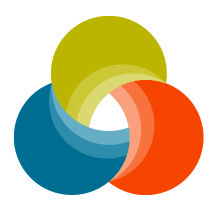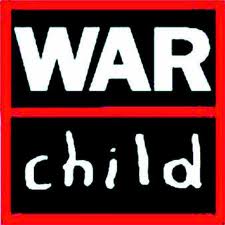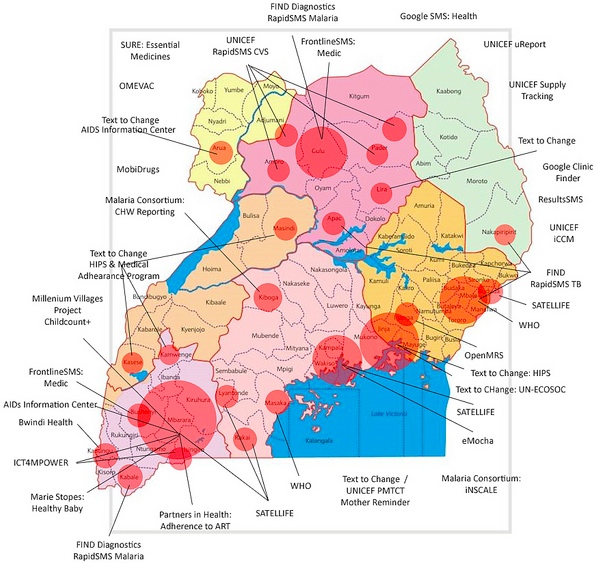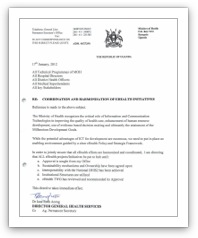A Ugandan mHealth Moratorium Is a Good Thing and 2 more
···
Sent from my mobile
---------- Forwarded message ----------
From: “ICTWorks” wayan@inveneo.org
Date: Feb 22, 2012 5:04 PM
Subject: A Ugandan mHealth Moratorium Is a Good Thing and 2 more
To: knutst@gmail.com
A Ugandan mHealth Moratorium Is a Good Thing
Posted: 22 Feb 2012 01:00 AM PST
I am David McCann and when I first arrived in Uganda, I used to describe it as “the perfect storm” for aid in general, and M4D in particular. The country overall has the necessary cellular coverage for a successful M4D project.
Kampala is comfortable, with mild weather, good infrastructure (Umeme Electricity Co. notwithstanding), and more than its share of international-style restaurants for all those expatriate aid workers. And in contrast, the impoverished Northern regions of the country have the necessary need for immediate and long-term intervention from development organizations, from the small NGO to Big Aid.
The government, at first blush, seems to enjoy the arrangement
Discussions of corruption within any large organization or government could fill volumes, but to put it succinctly, big money flows through Uganda, funds many of its public programs, and is certainly strained through the appropriate parliamentarians (and yes, a few high-paid NGO consultants) before arriving where it’s needed.
The result is almost a gold-rush frenzy to get one’s own brand of smart phone and wheel-reinventing Android app out to a handful of Village Health Team workers and change the world. In theory, this sounds like a win for the Ugandan people…
In practice, there are other details to consider
You’ve managed to track drug stock-outs in a sub-county in Moroto using solar chargers and 50 Samsung Galaxies. That’s great, can we share data with a similar project I did using BlackBerries in Gulu? Probably not. You’ve rolled your own drug-stock-tracking application. And yet when members of Big Aid met with the Ministry of Health, to account for the overlapping features of their mHealth applications and whether API integration is possible, one actually responded along the lines of “well, it’s backed by a relational database, so in theory, yes.”
While true, this misses the intent of the question by a wide margin. It’s worse in the education sector, where the Ministry of Education and Sports has unfortunately contracted a private US company to write a proprietary, never-completed application for tracking district-level attendance. A year ago I was told it did have an API, “using SOAP.” A year later the company has yet to elaborate on that single sentence worth of documentation.
Uganda MoH mHealth Stop Work Order
Ministry of Health is pushing coordination
In contrast, the Resource Center at the Ministry of Health has in their employ a talented young IT professional, whose task has been to migrate literally dozens of historical databases (in MS-Access, shudder) over to their running instance of DHIS2. When I have the pleasure of speaking with him, he gets excited about software using Django, FOSS in general, and API layers for sharing data. He’s part of an elite few Ugandan IT professionals who are changing their country for the better.
DHIS2 is fulfilling the medical recording needs of not only Uganda, but many other countries in the region including neighboring Rwanda. It is free, open source, and continues to have features added to it by an active community. Its adoption by (and related referendum from) the Ministry of Health in Uganda signals perhaps not a changing of the guard, but at least the entrance of a few people in key positions who pay attention.
These champions are forcing the Big Aid organizations to do M4D in a more coherent way. They’ve cut the tracking of health-based indicators that serve only as metrics of aid success, and they get excited (and sometimes even angry) when they see the messages people send in to an anonymous hotline about drug stock-outs or health provider absenteeism. (For those in Uganda, the hotline is a free SMS short code, 8200, and you can report on any problems in your local health facility).
If you want to do M4D in Uganda, you have to be willing to collaborate.
If you still think the best way to succeed is by handing out an iPad to every village health worker in the parish you’re working in, great. Just make sure first that no one else is handing out Androids there too. And when your pilot crashes and burns because it can’t scale country-wide, your data should at least be able to feed into a system that tracks the entire small-scale NGO graveyard of projects, because the sum total of the data actually is useful, even if the project itself ultimately wasn’t. If you’re Big Aid, it means you’re going to have to start re-thinking the budget of that $hundreds-of-thousands grant, because it probably shouldn’t have your own branded software platform as a line item.
Obviously, I see this as a good thing. It’s a powerful indication that at least at the Ministry of Health, Uganda is ready to take ownership for its development. And really, isn’t that sort of the whole point?
You are not watching this post, click to start watching
Get an ICT4D Job with Inveneo, Catholic Relief Services, or infoDev
Posted: 21 Feb 2012 05:31 AM PST

Senior Project Manager: Inveneo, the parent company of this very ICTworks site, is looking for a hands-on Senior Project Manager with deep experience in implementing computing and wireless networking projects internationally, preferably in developing countries. The position is based in San Francisco with about 30% travel, mostly in Africa. You can read more details here.

Asia Managing Director: READ Global believes empowering rural communities is critical to alleviating rural poverty. Using their proven model of community libraries and resource centers, they provide the rural poor access to knowledge, resources, and opportunities to build more prosperous futures. READ Global is seeking a Managing Director to oversee and work closely with the Country Directors of India, Nepal, and Bhutan. Among other responsibilities, the Managing Director will oversee quality implementation of all of READ Global’s programs with a special focus on ICT, library training, monitoring and evaluation, women’s empowerment, livelihood skills training, and sustainable enterprise initiatives. The position is based in Mumbai and application deadline is February 24. The job is listed here.

Manager–ICT4D Projects: Catholic Relief Services seeks someone to manage its portfolio of ICT4D projects. This broad management position includes integrating ICT4D initiatives into existing projects, working to define the scope, goals, and deliverables of these projects, and work with stakeholders to provide a comprehensive ICT4D strategies and quality solutions. The position is based in Baltimore (with 25% travel) and the deadline for application is March 12. More information is available here.

Senior Program Coordinator: The World Bank’s infoDev program needs a Senior Program Coordinator for its EPIC (Entrepreneurship Program for Innovation in the Caribbean) Program. EPIC helps growth oriented Micro, Small, and Medium Enterprises in the Caribbean region use small business incubation as a tool to help technology enabled start-up entrepreneurs and grow competitive industries. The incumbent will lead the development and implementation of the entire EPIC Program, including setting milestones, budgets, reporting mechanisms, as well as managing all aspects of every EPIC project. Application deadline is March 1. Click here for details.

Senior ICT and Media Advisor: War Child International is a network of independent humanitarian organizations that work together to help children and youth affected by armed conflict. War Child Holland is seeking a Senior ICT and Media Advisor to support and advise staff to integrate ICTs and media effectively into their programs. The position is based in Amsterdam and is a 12-month assignment. Deadline for application is March 4. More information is available here.
You are not watching this post, click to start watching
You are subscribed to email updates from ICTWorks
To stop receiving these emails, you may unsubscribe now.
Email delivery powered by Google
Google Inc., 20 West Kinzie, Chicago IL USA 60610

